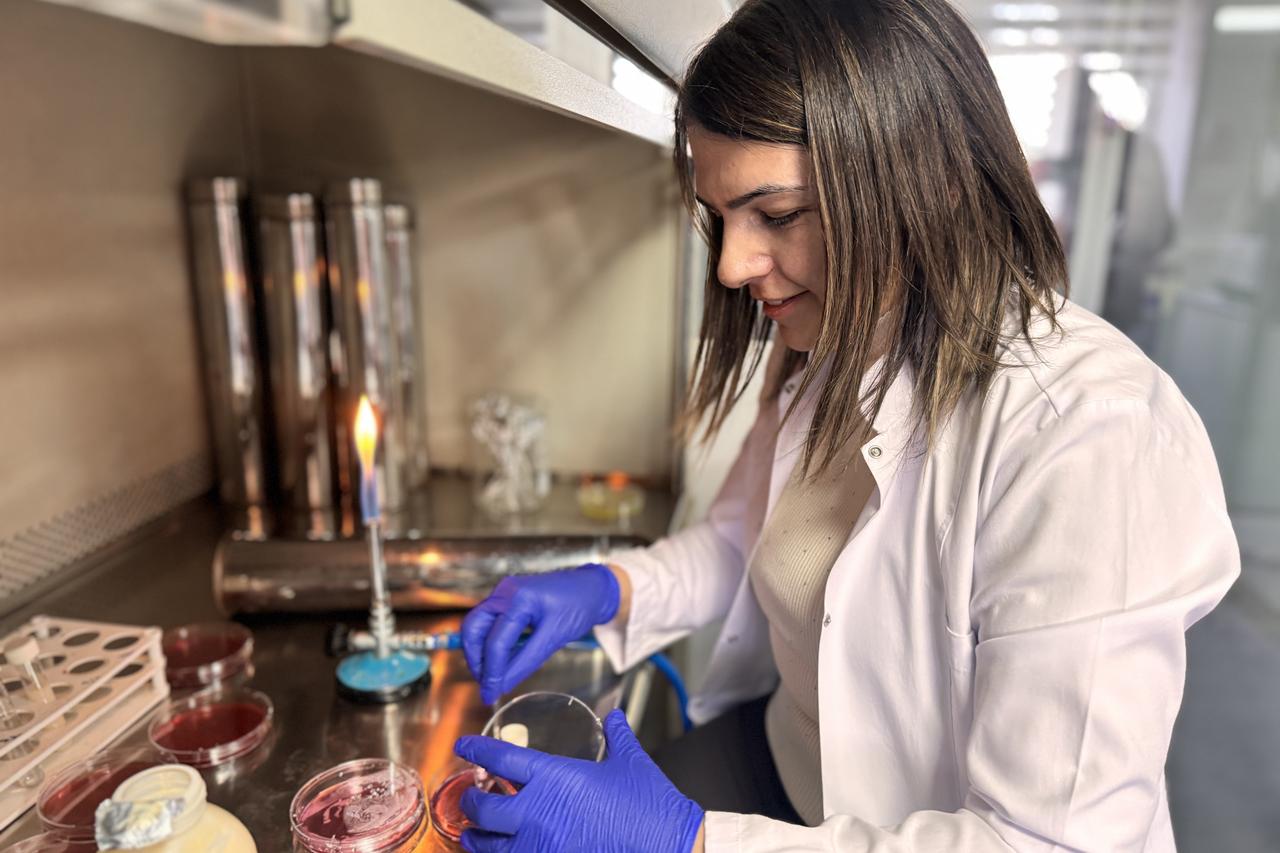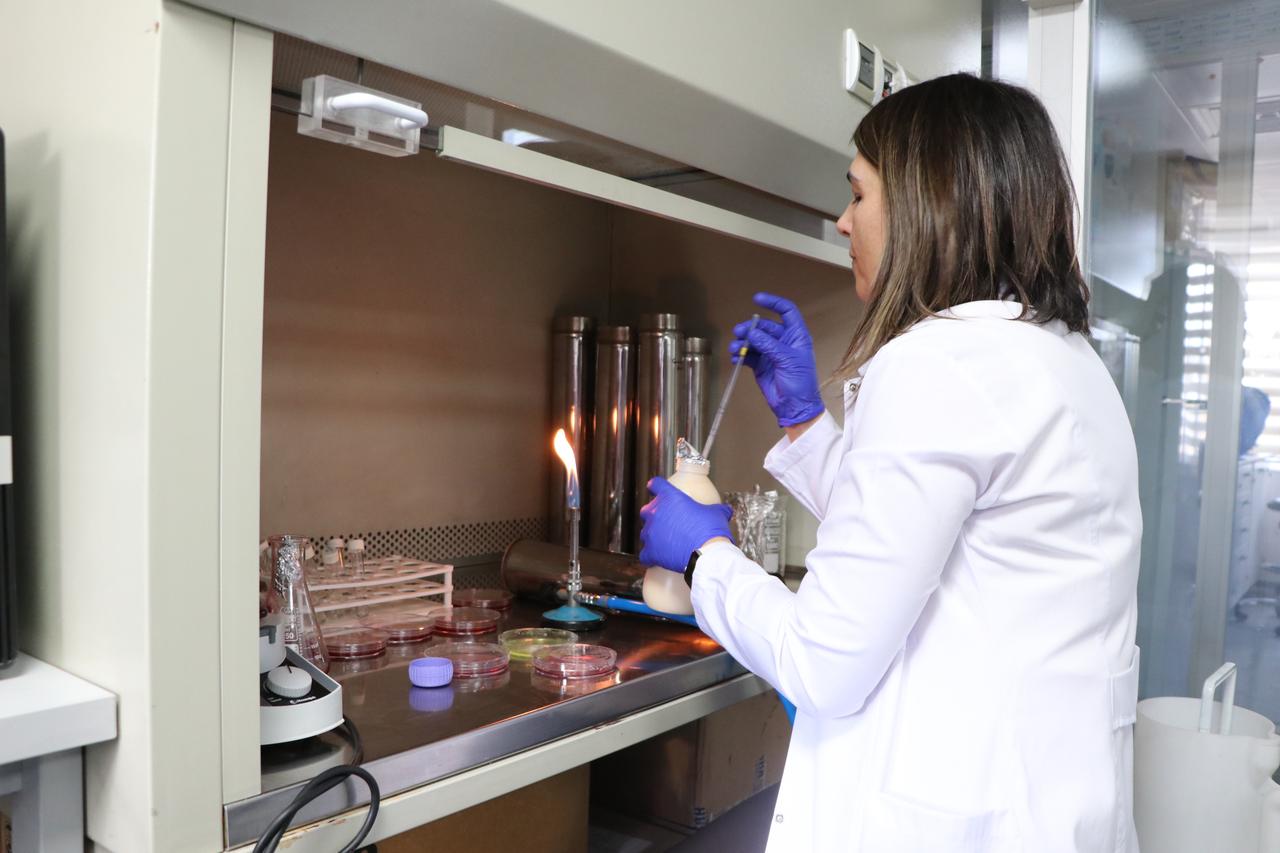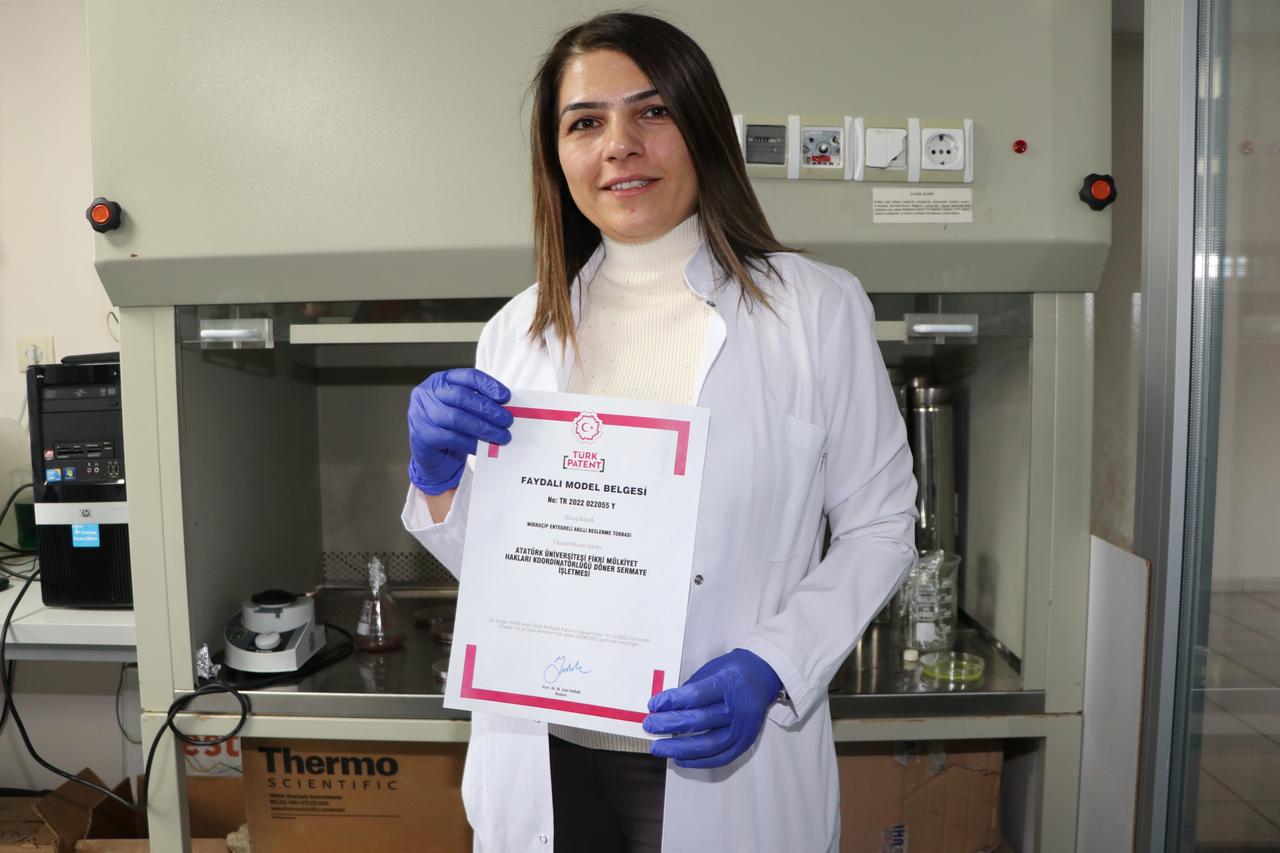
A microchip-integrated smart feeding bag developed in Erzurum to show when enteral feeding solutions have spoiled has been registered by the Turkish Patent and Trademark Office (TÜRKPATENT), marking an important step for home-based care of patients who cannot take food orally.
Professor Gonca Alak of Ataturk University’s Faculty of Fisheries said she began working on the project about three years ago after a conversation with her sister, who is a nutrition nurse, and her physician brother-in-law.
She noted that trained hospital staff can usually monitor enteral feeding safely, yet, once patients are discharged and cared for at home by non-specialists, the risk of using spoiled nutrition bags increases, which may harm already vulnerable patients. She explained that her sister had warned her that “some problems that could affect patient health” may occur in such settings, and the project was shaped to reduce that risk.

Alak first worked for about a year in the laboratory on bacteria that may develop in food placed in enteral feeding bags. She then designed a system in which a sensor and a microchip are integrated into the feeding bag so that the bag changes color when spoilage begins.
According to her findings, the microchip reacts to secondary metabolites produced by bacteria that grow in the feeding solution. When this reaction occurs, a visible color change appears on the package and signals that the solution is no longer safe to consume. Alak said this visual warning will allow patients’ relatives or caregivers to decide quickly and confidently whether the nutrition bag should be used or discarded.
She underlined that enteral feeding products are highly sensitive because they contain rich nutrients that make it easy for bacteria to multiply if storage conditions are not ideal. These products are often administered over long periods, sometimes up to 12 hours, which further increases the chance of contamination, especially when room temperature, hygiene, or handling practices fall below medical standards.
In hospital settings, trained nurses usually keep these factors under control, but Alak pointed out that “environmental factors, lack of hygiene and lack of individual awareness” at home may turn a product intended to support the patient into one that threatens the patient.
The Erzurum-based researcher said the aim was to make the process more comfortable for the patient and safer for the caregiver. Once the microchip detects bacterial activity in the solution, it triggers the color sensor on the packaging, which in turn gives a strong visual message that the product should not be used.
This function, she said, will make the job easier not only for patients’ relatives but also for health professionals who look after such patients in hospitals. She added that the system will also provide information about the effective shelf life of the nutrition bag, as the color change will show when the product has passed the safe point.

Alak named the invention “Microchip Integrated Smart Feeding Bag.” The Turkish Patent and Trademark Office registered it under the “invention” category, securing the intellectual property rights for her and her team.
She thanked her nurse sister, Filiz and her doctor brother-in-law Enver Aval for supporting the project from the idea stage to the laboratory phase. She also said they plan to use funds provided by their university to bring the system together with the industry and move it to a commercial level so that it can be used more widely for patients who rely on enteral feeding at home and in hospitals.